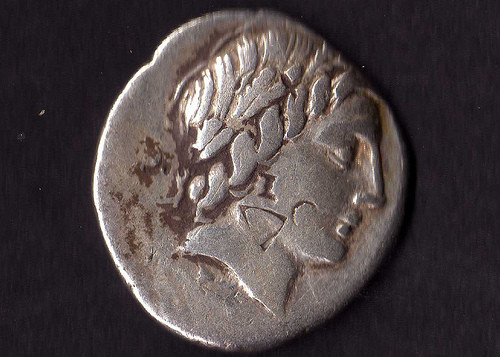
Was Jesus political, and what does His Word say about politics?
How should Christians participate in politics, if at all?
It’s critical we don’t get swept away with what mainstream media says is popular, or what a society says is right. We have to be thinking about and discussing issues to know what we believe and why we believe it. We also have to be willing to change what we believe if it doesn’t line up with what God says about any issue.
We need to be bright lights, not hidden, but present and prominent in social discussions.
Politics Is Interested In Us
Politics is a minefield of opinions, assumptions, and agendas. It’s easy and in fact, quite common, to put it in the too hard basket or admit we’re just not that interested in it. The problem is, even if we’re not interested in politics, politics is interested in us.
Let me explain. In my country, it was politics that decided education should be not only available but compulsory for everyone. It was politics that decided we should try and help people who have fallen on hard times. It was politics that decided clean water should be supplied to every house and building. It was politics that decided how much of your annual income should be taken by the government and politics that decides how it is to be spent. Politics is interested in your family – in your education, your welfare, your living conditions, safety and health, and your money.
In other places and times, politics has decided that whole races of people should be exterminated, that unborn children have no value, and that people with genetic conditions should be sterilised. Politics decided that religion should be altogether illegal, that prayer shouldn’t be allowed in schools, and that marriage has no meaning. Politics decided that everything people owned & earned actually belonged to the government, and that merely offending someone who was a criminal offence. Politics has torn fathers from their families and thrown them in jail without contact or trial for years, if ever again. Politics has bankrupted family businesses with no reason beyond their personal beliefs.
 Familiarity with the freedom to have a say in your future breeds a contempt for politics that is not shared by those who do not enjoy that freedom. History reveals the joy and enthusiasm those who have previously been denied votes exhibit when they first get to vote, thanks to movements like civil rights and women’s suffrage. What a precious blessing the legal right to not just vote, but to publicly discuss the future of our society is.
Familiarity with the freedom to have a say in your future breeds a contempt for politics that is not shared by those who do not enjoy that freedom. History reveals the joy and enthusiasm those who have previously been denied votes exhibit when they first get to vote, thanks to movements like civil rights and women’s suffrage. What a precious blessing the legal right to not just vote, but to publicly discuss the future of our society is.
How can we be good stewards of this blessing, this freedom? How can we all best demonstrate gratitude, and value the privilege so many others in the world and even our own social histories have been denied, and prayed for earnestly, and fought for violently – which we now count as familiar, and if we’re honest, even sometimes annoying & inconvenient?
Was Jesus Political?
Let’s consider another question: was Jesus political, and what does His Word say about politics?
I’ve heard it said that Jesus wasn’t ever political, because He never commented on the Roman rulers, although the Pharisees tried to bait Him to. They presented Him with a trick question, asking if it was right to pay tax to Rome. Now to paint the context in which this question is asked will help us understand why they asked it and the danger He was either of the answers they anticipated when they asked it.
The Roman Empire around 30AD had a strategy of invading a foreign nation, conquering it, and then establishing peace. They needed peace, because they had too many nations under their control, and couldn’t fight on all fronts at once with finite resources and armies. So they would rebuild the nation they’d destroyed with their advanced engineering and social stability. Pax Romana, or Roman Peace, was an asset to these nations which often had inferior justice and social cohesion prior to Rome’s occupation. The roads Rome established helped commerce, and maintaining them helped employ the now subjugated people, giving them a kind of consolation prize which usually kept them happy. Rome then required only a few extra things, and let the people go back to their lives. Those things were basically a Roman Governor to represent Rome’s interests in the nation, a taxation of everyone in the occupied nation to help make Rome richer and fund the next conquest they had planned, and worship of the Roman Emporer instead of their previous religion. These things weren’t ideal, but were accepted by most invaded nations, in return for the peace and prosperity that Rome offered.
Of course as well as the carrot there was the stick. If you didn’t pay your taxes or worship the Emperor, the reprisal was swift and brutal. Roman cruelty was exaggerated, and a political tool to make the point that insurrection would not be a healthy decision. Now Israel was one of Rome’s harder cases. Those Jews were just so determined to not worship Caesar, that they literally would have been killed to every last man rather than comply. So Caesar made an exception, and allowed the Jewish Temple, rituals and ceremonies to stand. They continued to worship God, and the Jews accepted the local Governor, the taxes, and the occupation continued with an uneasy tension – they hated Rome. The prophecies about the Messiah setting up His literal kingdom were interpreted subjectively, and they longed for a Saviour, not from their sins, but from their Roman masters.
This is important to know and understand because when the Pharisees publicly asked Jesus if they should pay taxes, they expected He had two options. He could say, “Yes, pay your taxes to Rome,” so He would avoid getting arrested – but then He would risk losing the affection of the crowds of people that were hanging off His teaching. He could also say, “No, don’t keep doing the humiliating thing that reminds you of your subjection to dirty heathens,” so He would avoid offending His followers – but then risk getting arrested and probably severely dealt with by the Romans. They thought this was a perfect trap, and either way they would get what they wanted, and that was to get rid of Jesus and His teaching.
 He called them out as hypocrites and not really wanting to be taught, but to just trap Him. He answered full of wisdom, “Give to Caesar what is Caesar’s, and to God that which is God’s.” This was brilliant, because the coin which was the amount each person had to pay in tax had Caesar’s face on it. Jesus effectively said, “Paying tax isn’t worship, it’s civil obedience and both are important.”
He called them out as hypocrites and not really wanting to be taught, but to just trap Him. He answered full of wisdom, “Give to Caesar what is Caesar’s, and to God that which is God’s.” This was brilliant, because the coin which was the amount each person had to pay in tax had Caesar’s face on it. Jesus effectively said, “Paying tax isn’t worship, it’s civil obedience and both are important.”
This is only the shallow end of Jesus’ political discussions though. Check this out.
Roman currency was unclean, it was heathen. It was never allowed in the Temple. So when people came to worship at the Temple with the old system of animal sacrifices, they either brought their own lambs, doves etc, or if they weren’t farmers, they purchased them there. This created a need for currency exchange as well. Money changers would take your Roman currency, and give you an equivalent value in Temple currency, minus a fair amount for their living. Or at least that was how it was meant to be.
When Jesus arrived, this needed enterprise had become an unrighteous exploitation of already oppressed poor people. At their moment of worship, in God’s holy Temple, when they had to have Temple currency to buy sacrifices to worship God and receive forgiveness for their sins – they were completely powerless. They could complain and go away, or they could pay the exorbitant rates of exchange. This greed, this selfishness, this unjust exploitation of the poor who had no voice and power to save themselves made Jesus furious, and the rest is a well known story.
Jesus publicly defended the vulnerable, and the proper order of things in God’s House. He didn’t lose His temper – He took the time to make a whip. He deliberately criticised and attacked the exploitation of the weak, vulnerable, and defenseless. He identified what it should be in Isaiah – “a house of prayer”, and what it was instead in Jeremiah – “a den of thieves”. He also based His political position in Scripture.
The Political Parties of First Century Israel
The Pharisees were a political party of laymen and lawyers, in competition for the leadership of Israel mainly with the Sadducees, a party of the high priesthood that had traditionally provided the sole leadership of the Jewish people. The Essenes were a third party, but the Pharisees were the most numerous and the most influential. Their “policy platform” was strict observance of the Law at all costs and separation from anything not Jewish. Pharisees, even more than the Roman occupiers, impacted the day to day social values, and welfare of first century Israel – with Rome’s permission.
To say Jesus wasn’t political would be to completely discount the fierce and personal criticism He had of the most popular political leaders of Israel in His lifetime. He called them hypocrites, white-washed tombs full of dead men’s bones, and a brood of vipers. He condemned their politics, their character & integrity, and their further oppression of people already heavily burdened. Jesus was very concerned about the social justice issues in His day, and He was very politically vocal. Perhaps this gives us better insight into why the Pharisees were so threatened by gentle Jesus, meek and mild, that they wanted him dead!
Christ-Like Participation
We obviously can’t say Jesus wouldn’t participate in politics today; so how would Christ conduct Himself, politically? Would He have a Facebook account? Would He run for office? Clearly He had a specific mission. His occupation was Rabbi, not politician, so we know He didn’t think it necessary to be elected or in political authority to have a strong presence in the political discussions.
 In the Gospel of Mark it’s recorded that Jesus wanted His followers to be compared to lights that weren’t hidden, but on public display for all to see. He again commissioned us to be like salt that hasn’t lost its flavour and become useless. He wanted us to be a city set on a hill – quite public and exposed.
In the Gospel of Mark it’s recorded that Jesus wanted His followers to be compared to lights that weren’t hidden, but on public display for all to see. He again commissioned us to be like salt that hasn’t lost its flavour and become useless. He wanted us to be a city set on a hill – quite public and exposed.
Jesus wasn’t a brawler. He didn’t go picking silly fights over silly things, but spoke directly to the heart of issues that impacted people and displeased God. 2 Timothy chapter 2 says we are to “avoid foolish and ignorant disputes, knowing that they generate strife. And a servant of the Lord must not quarrel but be gentle to all, able to teach, patient, in humility correcting those who are in opposition, if God perhaps will grant them repentance, so that they may know the truth, and that they may come to their senses and escape the snare of the devil, having been taken captive by him to do his will.”
Proverbs 18:2 says, “Fools have no interest in understanding; they only want to air their own opinions.” It’s wise to not get into foolish arguments with people who are only interested in airing their own opinions, causing strife, and choosing to be offended.
It’s Christ’s ambition for us to be able to treat everyone gently, to explain patiently, and to humbly bring correction. There’s a wise balance to be maintained, and not being interested in social reforms is as un-Christ-like as is attacking anything and everything.
I believe Jesus wants us to speaks about issues and ideas, but generally refrain from speaking about individuals and identities. The suitable character of those seeking to lead us would be a reasonable exception. For example. when the woman who’d been caught in sexual sin was thrown at His feet for public judgement, He didn’t fall over Himself to avoid causing offense and agreed she had sinned, but refused to condemn her personally. He was able to separate individuals from issues. He said, “Neither do I condemn you. Go and sin no more.” He loved her unconditionally, and loved her too much to leave her in her sinful condition.
1 Peter 3:15 and 16 says, “If someone asks about your hope as a believer, always be ready to explain it. But do this in a gentle and respectful way. Keep your conscience clear.” Our hope as believers is not just for the imminent return of our King to establish His physical Kingdom, but for our nations to be righteous, to honour God, and to flourish under His ways. Being ready to explain why we hope for marriage and life and society to be as God instructs is important. Getting ready to explain and answer why you hold your point of view can be done many ways. Perhaps one of the most accessible is social media. Observe or even participate in discussions. Allow your thinking to be challenged and then search for answers in Scripture and from mature believers who value God’s Word above social acceptance and political correctness. It’s okay to disagree, as long as we keep a clear conscience, as Peter instructs.
I believe it’s critical we don’t get swept away with what mainstream media says is popular, or a minority or even a majority says is right. We have to be thinking about and discussing these issues to know what we believe and why we believe it. We also have to be willing to change what we believe if it doesn’t line up with what God says about any issue. Colossians 2:8 says, “Don’t let anyone capture you with empty philosophies and high-sounding nonsense that come from human thinking and from the spiritual powers of this world, rather than from Christ.” Our philosophies and thinking must be deliberate, and come from Christ.
The bottom line is we need to be interested in politics. We need to be bright lights, not hidden, but present and prominent in social discussions about our own future. What better platform does the average believer have to set their light on nowadays than social media? Jesus said to set your light on a stand! We need to be tasty salt, useful in adding flavours of Truth and righteousness and right thinking to everything around us.
It’s okay to not be sure how or where to begin, but it’s not okay to stay there. James encourages us, “If any of you lacks wisdom, you should ask God, who gives generously to all without finding fault, and it will be given to you.”
As He Is, So Am I
We know Jesus is very political. He was counter-cultural when the culture of the day opposed the Kingdom of God. He was confrontational when He saw oppression of the defenceless. He was critical when He encountered the abuse of power. There will be no clearer example of His politics and picking sides when He return to establish His earthly Kingdom with Jerusalem as His capital, restoring the nation of Israel to peace and security.
We don’t get to remain neutral. Jesus never was and never will be. The wise person will pick His side, and follow His lead, intelligently and prayerfully seeking His will and position on every topic. The good steward will prayerfully and wisely use opportunities to influence righteousness in their nation. This is not only patriotic & Christlike, it’s gratitude for the blessings and freedoms we enjoy.
Let’s let our light shine brightly. Let’s let our salt be useful. Let’s be the City set on a hill. Christians participate in politics.

Related Articles
No Results Found
The page you requested could not be found. Try refining your search, or use the navigation above to locate the post.

